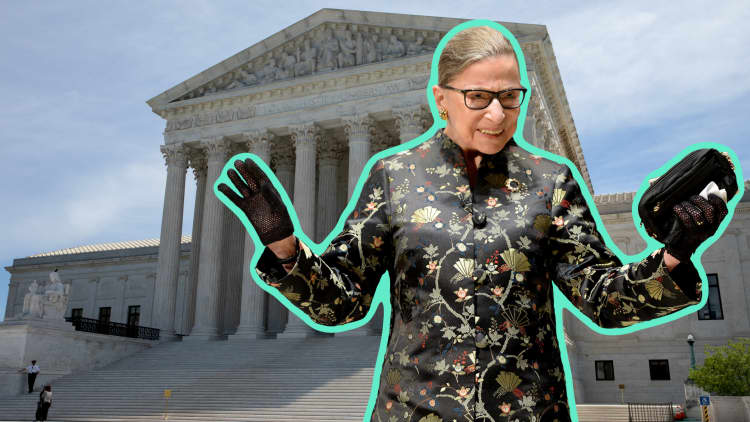The Supreme Court said on Monday that it will not hear an appeal from Adnan Syed, whose 2000 murder conviction was the focus of the first season of the popular audio show "Serial."
The decision was announced in an order with no noted dissents.
Syed was convicted of first-degree murder for the killing of his on-and-off girlfriend Hae Min Lee while the two were both attending high school in Maryland and Syed was 17 years old. He was sentenced to life in prison.
Prosecutors said that Syed strangled Lee in the parking lot of a Best Buy after school one day and then buried her body in Baltimore's Leakin Park. Syed was motivated by Lee dumping him two weeks before the murder, they said.
Syed's attorneys urged the court to reverse his conviction on the grounds that his original attorney failed to present crucial evidence in his defense.
According to them, that attorney, Cristina Gutierrez, failed to call a witness who could provide an alibi for Syed at the time of the murder. Gutierrez died in 2004 of a heart attack. She was disbarred in 2001 following complaints from a state commission that investigates attorney wrongdoing.
Syed's new attorneys told the top court that one of Syed's classmates, Asia McClain, remembered speaking with Syed at the library between 2:15 and 2:35. Prosecutors said that Lee was killed around 2:35.
Maryland argued that the new evidence would, at best, make the jury question the timing of the murder, but not Syed's guilt. The timing of the murder was a "small part" of the overall case.
Far more important to the case, the state said, was its witness Jay Wilds. Wilds testified that Syed bragged about committing the murder and that the two buried her body together.
Attorneys for Syed told the Supreme Court that in a normal case, a jury would be able to weigh the testimony of Wilds and McClain to decide whom to believe.
"In this case, however, the jury never heard McClain's testimony," Syed's attorney Catherine Stetson wrote in a brief.
Serial, produced by This American Life and released in 2014, raised questions about the state's case and became one of the most popular podcasts of all time, inspiring millions to dig into details of the investigation.
A Baltimore state court reopened Syed's case in 2015. But last year, the Maryland Court of Appeals reversed the decision and denied a new trial on the grounds that McClain's testimony would be unlikely to sway a jury.
In June, the top court ruled in favor of another individual whose murder conviction was the focus of a popular podcast.
The court held 7-2 in favor of Curtis Flowers, a black man in Mississippi who was tried six times by the same prosecutor for a 1996 quadruple murder. Flowers' case was detailed in the APM Reports podcast, "In the Dark."
Attorneys for Syed did not respond to a request for comment.
The case is Adnan Syed v. State of Maryland, No. 19-227.



